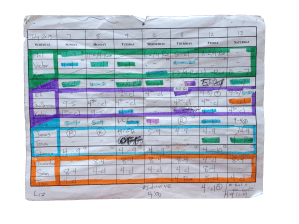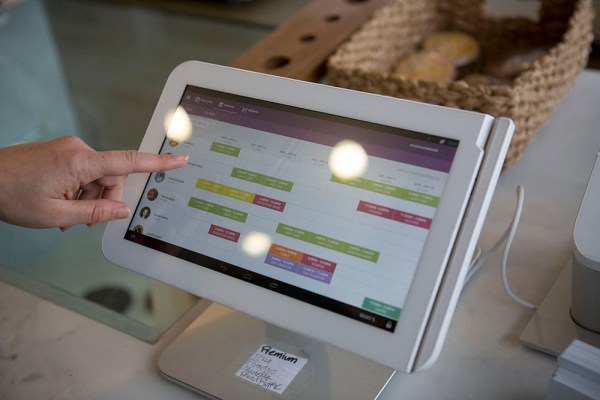Homebase, a San Francisco-based startup, is launching out of beta to take the pain out of scheduling and payroll management for small business restaurants and retailers.
90 percent of retail and restaurant scheduling is currently done on paper or Excel, which makes managing payroll an owner’s nightmare. It takes an average of seven hours per week to review timesheets and coordinate schedules, all while taking into account labor law compliance, overtime rates, and keeping within your operating budget.
For the 33 million people employed hourly by these local businesses, getting a shift covered often means consulting a call list, sending out a bunch of texts, and hoping you’ll hear back in time.
John Waldmann, founder of Homebase, shows me a photo of a schedule taken from a restaurant on University Ave in Palo Alto.

“We’re in the epicenter of tech, and this is how local businesses are being run,” Waldmann says. “It seems crazy to me — 30 percent of the workforce doesn’t have any technology helping them with scheduling and getting paid.”
Homebase helps to reduce the administrative burden of hourly work by automating scheduling, timesheets, and communication between employees. The basic tools are free, with tiered pricing options for additional features.

During a six month beta, Homebase tracked over 3 million shifts and $100 million in earnings for thousands of businesses across all 50 states. Businesses on the platform reported four to five hours per week of average time saved.
“It became a pretty big beta,” says Waldmann. “The joke is that we’ve been running the biggest beta of all time, because there are thousands of businesses using it now, but we really wanted to do that because this stuff is complex.”
Homebase will focus initially on the 2.5 million small business restaurants and retailers in the U.S., but there is a much larger market to tap — over a third of all American workers are hourly employees.
Considering that Slack has built a $2.8 billion dollar company around communication tools for corporate teams, creating similar tools for local businesses could be an equally large opportunity.
